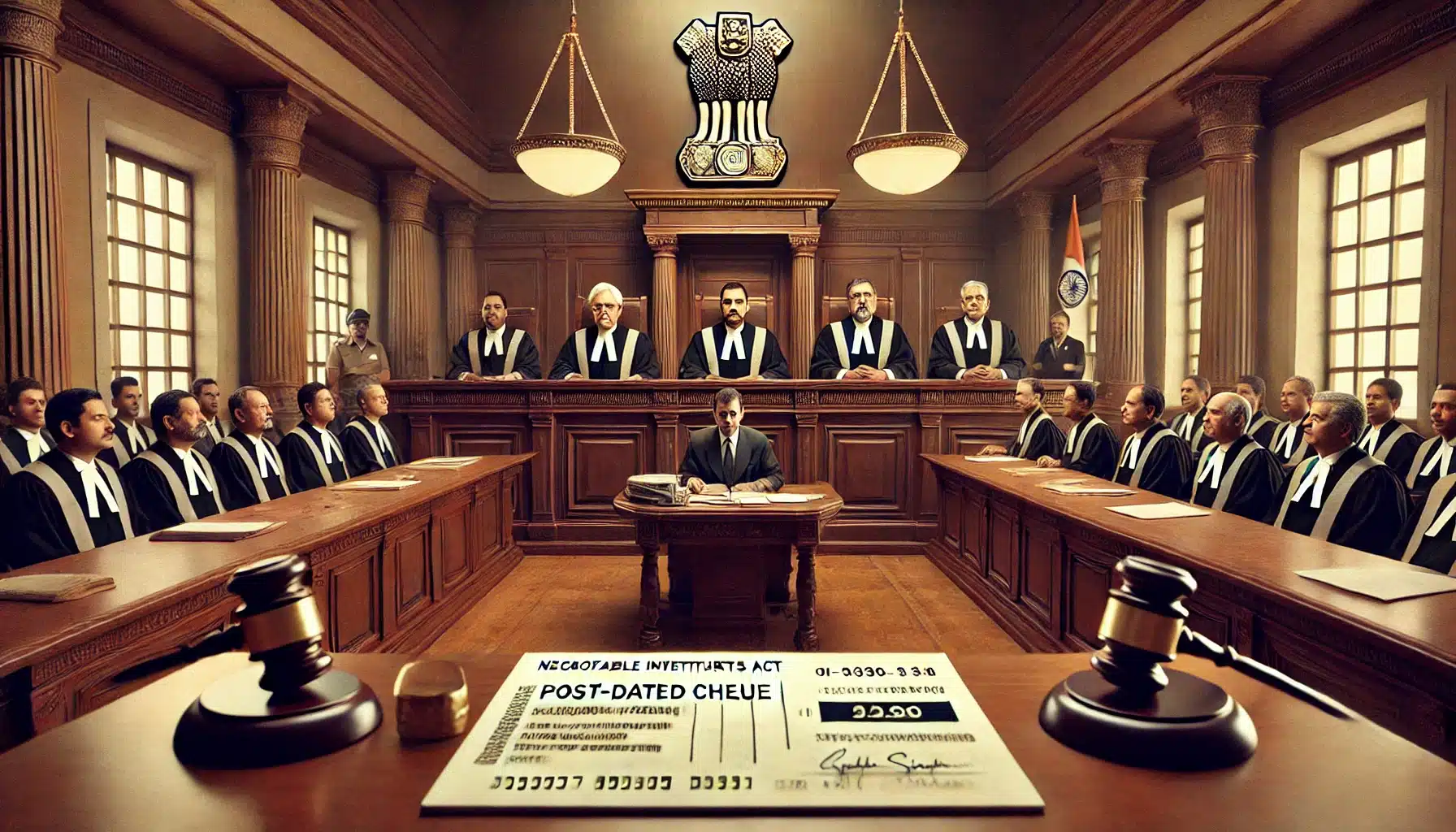In the case of Anil Kumar Sawhney v. Gulshan Rai, Supreme Court held that a ‘cheque’ under Section 5 of the Act is also a bill of exchange but it is drawn on a banker and is payable on demand. Thus bill of exchange even though drawn on a banker, if it is not payable on demand, it is not a cheque.

Citation: (1993) 4 SCC 424
Date of Judgment: 11th October, 1993
Court: Supreme Court of India
Bench: Kuldip Singh (J) and Yogeshwar Dayal (J)
Facts
- The appellant and the respondent were the share-holders of M/s. Sai Beverages Private Limited, a private limited company having its registered office at Karnal. The company had two groups of share-holders, one led by the appellant and the other by the respondent.
- Disputes arose between the two groups of share-holders led to the filing of a civil suit at Karnal, Ultimately the parties arrived at a settlement which was recorded in a deed of compromise dated March 5, 1990.
- The appellant in response agreed to transfer all the shares standing in the names of his group- associates to the respondent-Gulshan Rai for a total consideration of Rs. 10 lacs. The payment was to be made by way of eight post-dated cheques of different amounts.
- Consecutively the suit was disposed of in terms of the settlement entered into between the parties. Some of the cheques were encashed on presentation to the bankers. Two cheques dated February 15, 1991 for Rs. l lac each, one cheque dated April 15, 1991 for Rs. 1,50,000 and another cheque dated May 15, 1991 for Rs. 1,50,000 were returned by the banks with the endorsement “not arranged for – no funds”.
- The appellant thereafter issued notices as contemplated under Section 138 of the Act and having failed to receive the payment; filed complaints before the Chief Judicial Magistrate at Karnal, Punjab and Haryana high court.
- Learned single Judge of the High Court quashed the proceedings on the short ground that the cheques in dispute being post-dated cheques, the provisions of Section 138 of the Act were not attracted and, as such, no offence was made out on the admitted facts of the criminal complaints.
Decision of the Punjab and Haryana High Court
The Punjab and Haryana High Court in the impugned[1] judgment followed the Madras High Court view in Babu Xavier’s case[2] and held that the provisions of section 138 of the act were not applicable to the post-dated cheques.
Decision of the Supreme Court
Supreme court allowed the appeal, denying the acceptance of decision of P&H high court and held that high court fell into patent error in holding that the provisions of Section 138 of the Act are not applicable to the post-dated cheques, and gave the reasoning that the interpretation placed by the High Courts on Section 138 of the Act is not only contrary to the plain language of the various provisions of the Act but is also contrary to the Objects and Reasons of the Amendment Act. The said interpretation, if accepted, would defeat the very purpose of inserting Chapter XVII in the Act.
Finally the Supreme Court held that the provisions of section 138 of the Act are applicable to post-dated cheques and the impugned judgment of the High Court was set aside and the Chief Judicial Magistrate, Karnal was directed to proceed with the complaints pending before him in accordance with law.
Key legal issues discussed
1. Whether the provisions of section 138 of the Act are applicable to post-dated cheques?
Yes
According to the ruling of supreme court a post-dated cheque is only a bill of exchange when it is written or drawn; after it is due on demand, it is a cheque and is not cashable before the date mentioned on it, it continue to act as a bill of exchange under Section 5 of the Negotiable Instruments Act of 1881 until the date indicated on it, at which point it becomes a cheque and since a post-dated cheque cannot be presented to the bank, and so the requirements of Section 138 of the Negotiable Instruments Act, 1881 is confirmed.
[1] Gulshan Rai v. Anil Kumar, [1993] 76 COMPCAS 685 (P&H).
[2] Babu Xavier v. Lalchand Munnath [1990] TLNJ (Crl) 121.


